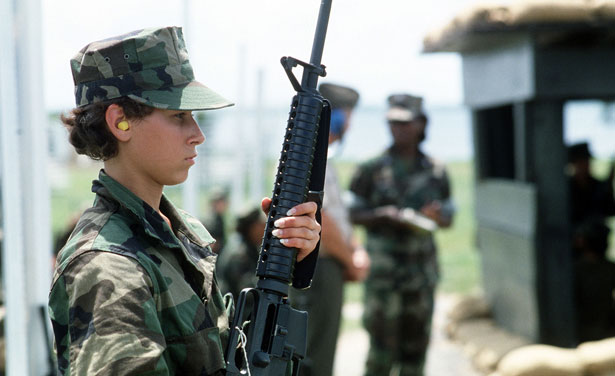
A woman Marine recruit waits to fire an M-16A2 rifle during basic training at the Marine Corps Recruit Depot. (Flickr/Expert Infantry)
Editor’s Note: Each week we cross-post an excerpt from Katrina vanden Heuvel’s column at the WashingtonPost.com. Read the full text of Katrina’s column here.
’Tis the season for scandals—real and manufactured—in Washington. But if our elected officials are searching for a real scandal, maybe they should start with the officer leading the Air Force’s anti–sexual assault initiative who was charged with sexual battery this month. Or the sergeant in Texas who allegedly forced a subordinate into prostitution. Or the 26,000 sexual assaults that happened in our military in the past year alone.
This epidemic has festered for far too long. At this moment, an American female soldier in a war zone is more likely to be raped by a fellow soldier than killed by enemy fire. Under the current military justice system, victims must sometimes report a rape to their own rapist. Unmarried victims raped by married men can be charged with adultery, while the rapist goes free.
This is all powerfully documented in the 2012 Oscar-nominated documentary The Invisible War. The film exposes a military rife with misogyny and sexual harassment. It lays bare the stark reality sexual assault survivors face: Reporting these traumatic crimes often leads to even more trauma. Too often, victims’ claims are used against them, and they are ignored, interrogated or ridiculed. The result is a military system that makes it easier to rape—and easier to get away with it.
Editor’s Note: Each week we cross-post an excerpt from Katrina vanden Heuvel’s column at the WashingtonPost.com. Read the full text of Katrina’s column here.
![]() Take Action: Tell Your Senators to Address Sexual Assault in the Military
Take Action: Tell Your Senators to Address Sexual Assault in the Military


